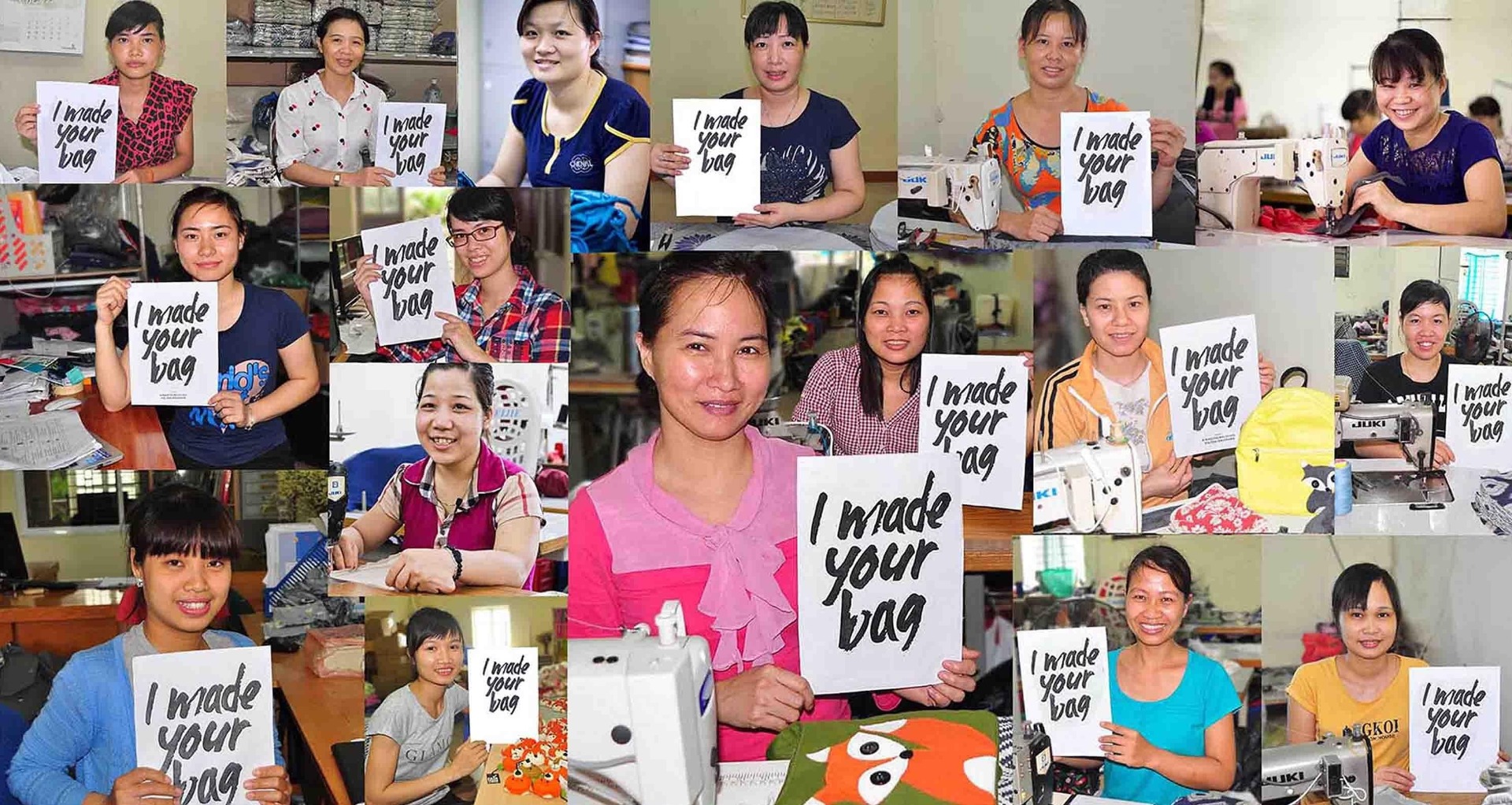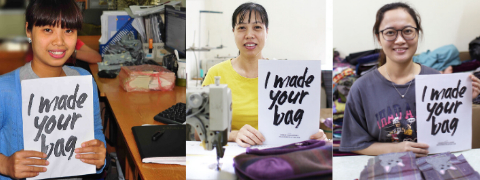Fair Trade Information
At Earth Squared we are passionate about combining great design and fabulous quality with direct benefits for the artisans that work with us. We have worked closely with fair trade accredited partners in Vietnam for the past 19 years to ensure fair trade criteria are embedded into everyday working life and to create a range of contemporary, stylish and affordable fashion accessories.
We are accredited by the British Association of Fair Trade Shops and Suppliers (BAFTS) and our partners in Vietnam are currently applying for for full membership of the World Fair Trade Organisation (WFTO).
The WFTO defines fair trade as “a trading partnership, based on dialogue, transparency and respect, that seeks greater equity in international trade. It contributes to sustainable development by offering better trading conditions to, and securing the rights of, marginalized producers and workers – especially in the South.So what is fair trade?
Fair Trade organizations have a clear commitment to Fair Trade as the principal core of their mission. They, backed by consumers, are engaged actively in supporting producers, awareness raising and in campaigning for changes in the rules and practice of conventional international trade. They can be recognised by the WFTO logo.
Fair Trade is more than just trading: it proves that greater justice in world trade is possible. It highlights the need for change in the rules and practice of conventional trade and shows how a successful business can also put people first.


How does Earth Squared make a difference?
We passionately believe that by creating attractive, well designed and beautifully made products we can offer greater opportunities for the fabulous artisans that work with us.
Almost all of the artisans who make the products were originally rice farmers earning a subsistent, irregular and inconsistent wage. The rice farmers in Vietnam are very dependent on the weather and other environmental factors out of their control. Working from dawn until dusk the farmers are still unable to earn enough money to feed their families and send their children to school.
Working as a seamstress or in quality control, for example, a person can earn a good standard of living and also send their children to school and on to higher education. In addition our partners pay national insurance for each staff member that covers medical costs and provides a pension for retirement all of which is above the national legal requirements.
All of the women working are trained on the job at the workshop in Hanoi. Each person is encouraged to progress and learn new skills so that they can be promoted. The working conditions at the workshops are clean and safe and the staff have regular breaks and days off work. There is flexibility for mothers who breastfeed as well as a system in place for women who are unable to come to work due to a child being ill and off school for example.
We have also worked with our partners to create a workshop for women with minor disabilities (and who might otherwise find limited opportunities for work) who make all of our purses. When two of the young women in the group, Trang and Dung, first started working they were lacking in confidence, unskilled and had had difficulties finding employment. With support from the staff they were taught new tailoring skills and over time have progressed to becoming team leaders. They are now able to financially support their families which has given them a place within their local society and has helped to increase their self esteem. Trang is now married and has a beautiful baby boy and Dung has bought a motorbike so that she has increased independence.
Some staff members are from remote provinces within Vietnam where there is widespread rural poverty. Often young women are sent to the larger cities and towns so that they can gain employment and send money back to their families. One such woman, Diu who was top of her class at school was unable to continue her education as her family did not have sufficient money. She was sent to Hanoi to work as a dish washer at a street café. She was paid so little that she could not afford to live. A relative recommended that she contact the company to ask about any available positions. Diu was initially given quite basic work in packing and dispatch but it soon became apparent that she was an intelligent and hard working young woman. With the support of her managers she returned to her studies on a part time basis and is training to become a computer administrator. She has also recently been promoted to team leader in quality control. She is now in a position to live comfortably in Hanoi, study and also send money back to her parents each month.
The company give disadvantaged women the opportunity and support to improve their lives through secure work, training and a healthy working life giving them financial security and self confidence.











